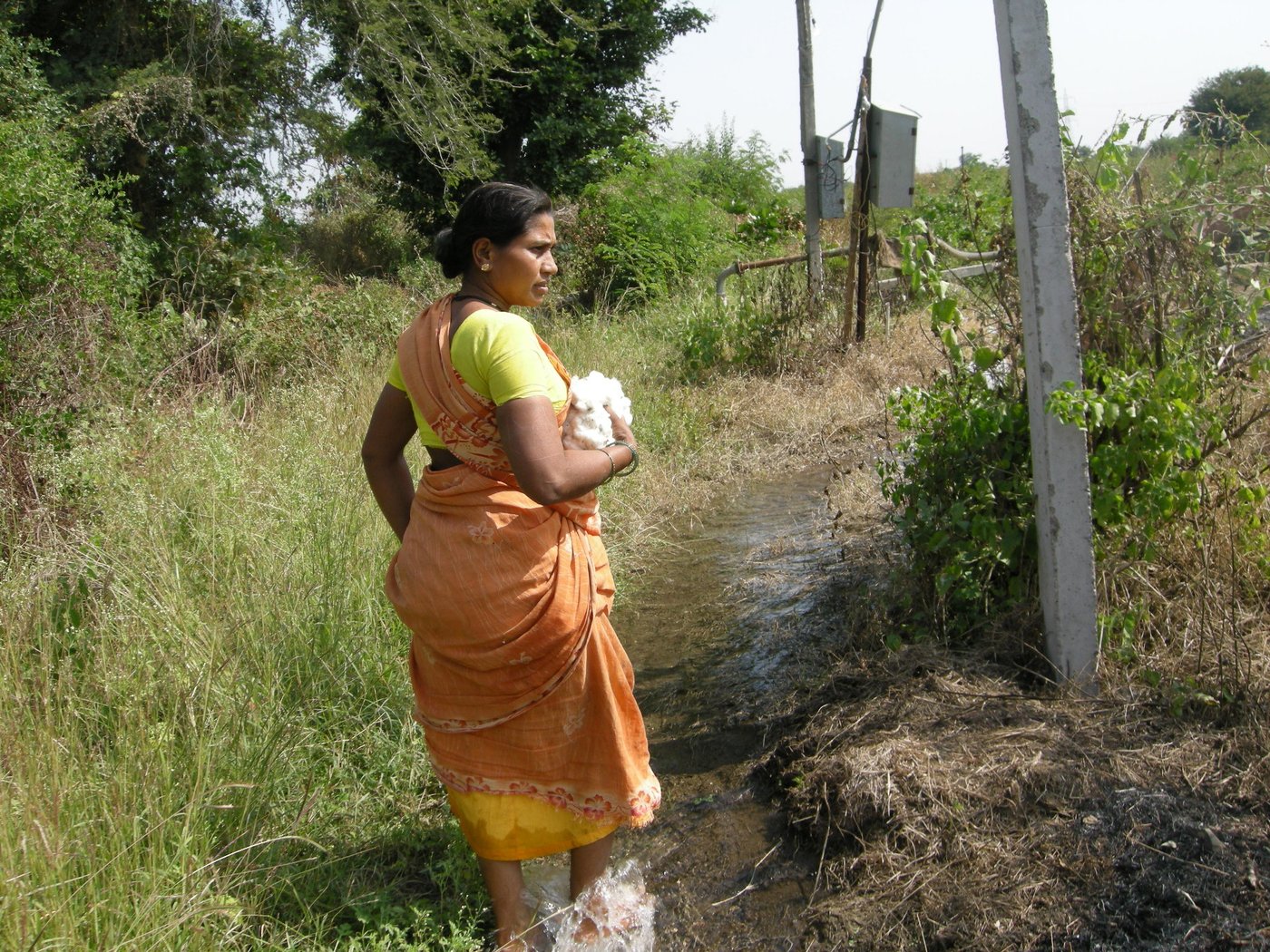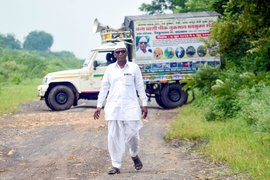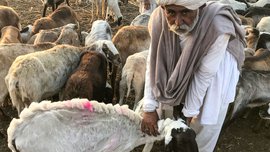Looking back, Ujjwala Pethkar wonders how she survived the hard times.
More than a decade after her husband Prabhakar, a farmer, took his own life to join a burgeoning list of farmers committing suicide in the Vidarbha region of Maharashtra, the 40-something farm widow is rebuilding the blocks of her life – and family.
Something kept her going. “Maybe,” she adds after a pause, “it’s my children.”
Ujjwala had no time to mourn, no luxury to rest and no support to fall back on. She was in her early 30s when Prabhakar consumed an insecticide. The responsibilities piled upon her: from tending to the farm to repaying debts and raising their two kids.
Brooding over the past decade, Ujjwala fights her tears while cutting her gram crop. This is her field – a five-acre plot in Kurzadi, a village of 2,000 people about 20 kilometres from Wardha city. The blistering sun has just announced the onset of spring, but it does not deter her from working in the field. “If I do not work, my children will not have a future – I can toil any longer for them.”
Alone in her own shadow, Ujjwala is the struggling yet resolute face of Vidarbha's struggling farm widows. She’s the portrait of an enduring farmer, an image of hundreds of farm widows, shouldering the family's burden and confronting a farm crisis that refuses to die down. Between 1995 and 2013 India has seen, according to the National Crime Records Bureau, close to 300,000 peasant-farmers’ suicides. Ujjwala’s husband died by suicide in 2003, when the cotton crisis in Vidarbha was still unfolding.
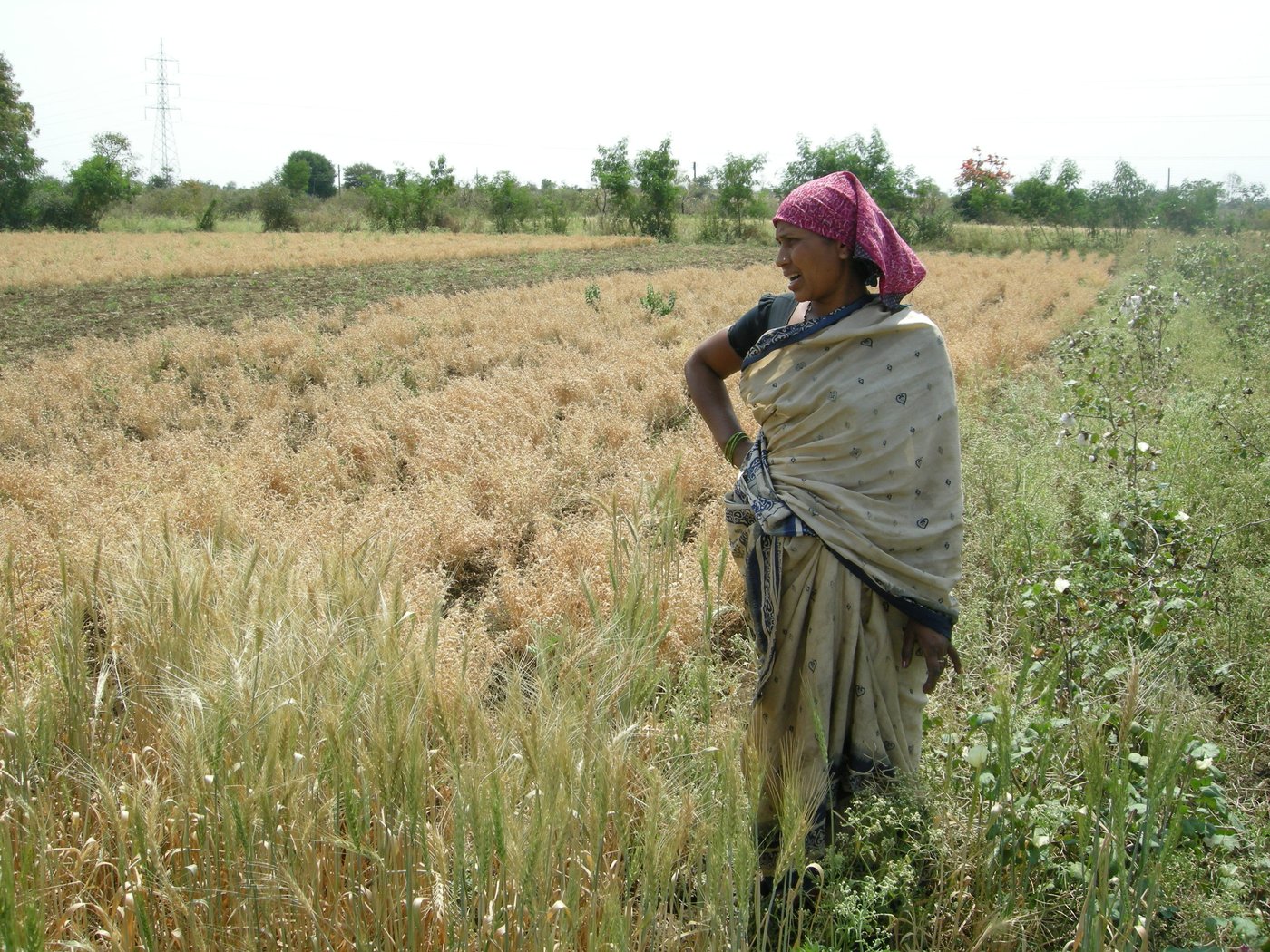
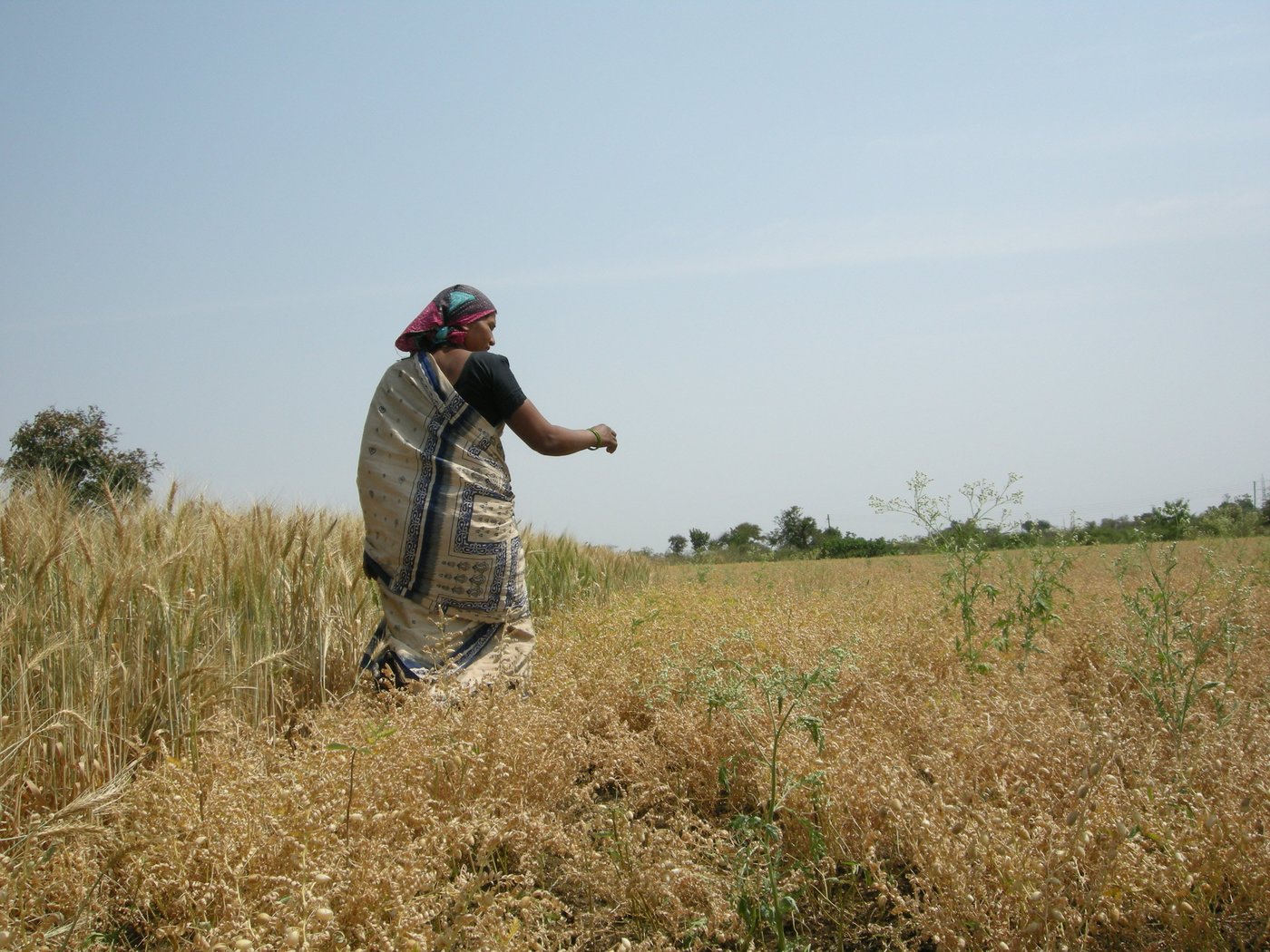
'I saw the real face of people after my husband’s death'
“Agriculture is not women friendly,” Ujjwala says. “When I go to a bank, clerks don’t take me seriously; when I go to market, men stare at me as if an outsider has intruded their bastion,” she says. “Farm labourers, even women, don’t come to my farm easily.”
Visualise her, in the process of 'feminisation of agriculture': Ujjwala works all day, all seasons, in her fields, to grow cotton, soybeans, maize, gram and wheat. She will be placing, despite the daunting challenges, food on your platter this summer; when her wheat crop is ready she’ll harvest it, collect it and bring it to the markets.
“If my husband were alive, I’d still have worked my farm, but may not have known the economics of it,” says Ujjwala, a handkerchief wrapped on her forehead, as she walks observing the standing wheat crop, about to be ready for harvesting.
Her movement from a being housewife to a farmer and family head, Ujjwala recounts, was not easy. “I saw the real face of people after my husband’s death,” she says. “No one, even close relatives, supports you – I learnt that I am all on my own in this world.”
Offers of help, she says bitterly, “are a veil that hides many an ugly intention of people.” She is wary of people who offer help. “I never seek it from any one; I face my problems, work my fields and tend to my children the best I can; that’s it...” Ujjwala is proud of her daughter Vrushali, who was about 10 years old when her father died, and now a confident young working woman. Vrushali shifted to Nagpur to train as a nurse after her matriculation, and works with a private hospital. Son Prasheel, 17, has dropped out and works a labourer, apart from helping her mother sometimes.
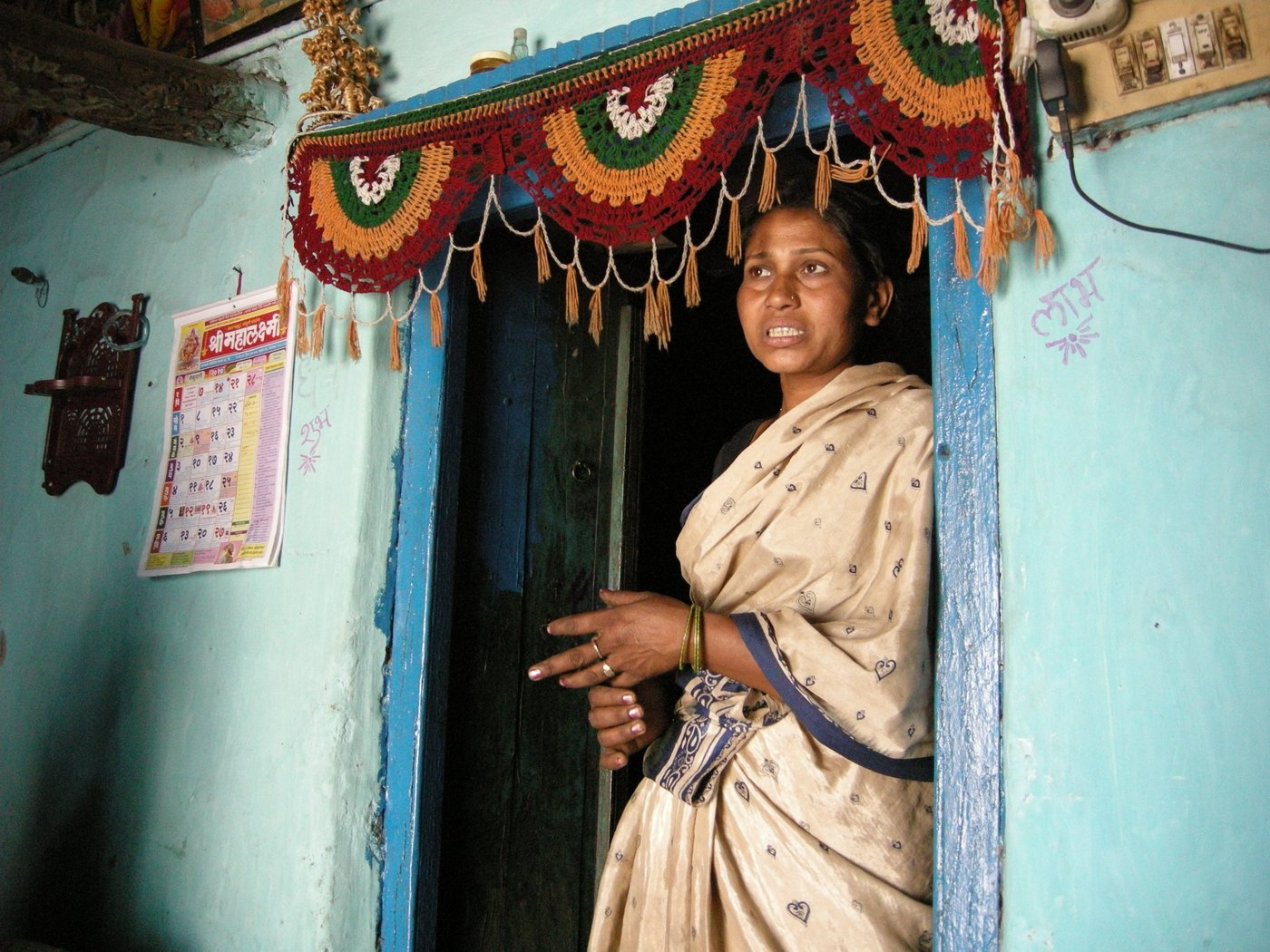
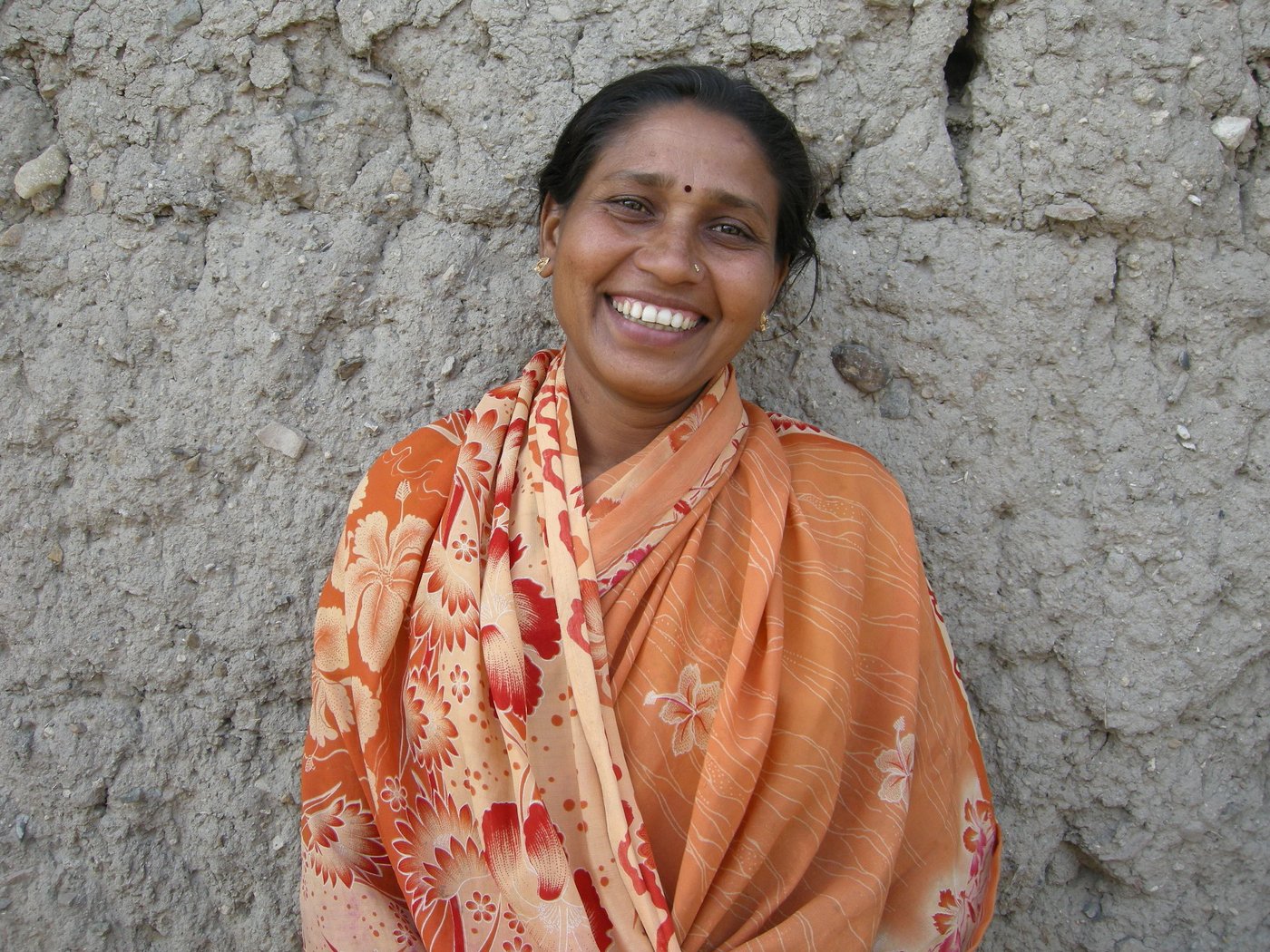
'I knew nothing': today, she farms smartly, rotates the crops, tries new things, handles the finances and says, 'Farming is difficult'
Ujjwala, married off at the age of 19 by her farmer parents, learnt the basics of agriculture on her own, starting from scratch: crop selection, buying inputs, banking transactions and actual farming and marketing. “I knew nothing.” Today, she farms smartly, rotates the crops, tries new things and handles the finances. “Farming is difficult,” she says.
Among the many approaches she tried on the fields, she realised diversified agriculture is the best strategy to reduce losses and increase income. “I planted sugarcane on the farm just to see if we can cultivate it; the yield was bad, so I did not go ahead,” she says.
Ujjwala says her in-laws distanced themselves from her the day Prabhakar died. The land, she says, is her only asset. “We lost four and a half acres to lenders while my husband was alive,” she says. “I have been unable to earn back that land – it’s beyond me.”
It is noon, and Ujjwala must stack the gram hay. The crop this year, she says, haven’t been good because of drought. “I am back in debt and loss,” she smiles.
Losses and debt did her husband in. “Two lakh rupees was our debt when he passed away,” she says. “I am repaying the loans part by part; have to repay more than a lakh of rupees to private lenders and the banks,” she says. “I am buying time from borrowers.”
Death is not the way out of crisis, she says, philosophically. “We get this birth only once; sorrows are a part of life; my husband killed himself without thinking about us.”
